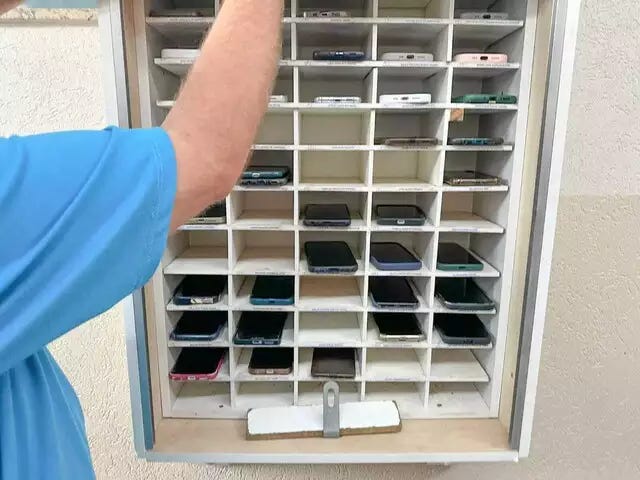In January 2025, President Lula signed a historic law prohibiting the use of cellphones in Brazilian schools, both public and private. The measure, which will take effect in 30 days, restricts the use of portable electronic devices during classes, recess, and breaks at all stages of basic education.
The new legislation emerges at a time of intense global debate about the impact of technology in education. PISA 2022 data reveals that 80% of Brazilian students are distracted by cellphones during math classes, negatively impacting their academic performance. A London School of Economics study showed that schools that banned smartphones saw up to 14% improvement in student grades.
However, the law's implementation faces significant challenges. Experts point to structural problems, such as the lack of infrastructure to safely store devices and the need for adequate teacher training. Additionally, 86% of Brazilian families support some type of restriction on cellphone use in the classroom, according to Nexus research.
The law provides important exceptions, allowing device use for pedagogical purposes under teacher guidance, as well as cases involving accessibility, inclusion, and health conditions. This flexibility seeks to balance the need for control with the educational possibilities that technology can offer.
The debate remains active in the educational community, with some experts arguing that simple prohibition does not solve the fundamental problem of digital education. It is necessary to develop broader strategies that include teacher training, adequate infrastructure, and the development of methodologies that constructively integrate technology into the educational process.
#KEYWORDS#
digital education, cellphone ban, educational policy, technology in education, mental health
#NAMES#
Luiz Inácio Lula da Silva, Camilo Santana, UNESCO, OECD, London School of Economics
#PLACES#
Brazil, São Paulo, Rio de Janeiro, France, Finland
#BIBLIOGRAPHY#
<p>Ministry of Education (2025). Law No. 15,100/2025<br>
OECD (2023). PISA Report 2022<br>
UNESCO (2024). Guidelines for Technology Use in Education<br>
London School of Economics (2024). Impact of Smartphone Ban in Schools</p>
#CITATIONS#
<p>Agência Brasil (2025). Law restricting cellphone use in schools sanctioned<br>
CNN Brasil (2025). Cellphones in schools: your questions about the ban answered<br>
G1 (2024). Majority of Brazilians support banning cellphones in schools</p>
#YOUTUBE#
#WIKIPEDIA#
<p>https://en.wikipedia.org/wiki/Educational_technology<br>
https://en.wikipedia.org/wiki/Digital_literacy</p>
#ALTTEXT#
#CAPTIONS#
#QUOTES#
"The law's objective is not to ban cellphones, but to protect our children and adolescents" - Camilo Santana, Minister of Education
"Banning cellphones in the classroom won't spread the culture and understanding that contemporary society needs" - Débora Garofalo, technology specialist
"For me, my world had ended. But the ban was fundamental and essential for us to evolve" - Kamilly Luanni, student
"Technology is not neutral; it shapes how we think and interact" - Byung-Chul Han, philosopher
"A student truly engaged in meaningful activity rarely gets distracted by their cellphone" - Digital Education Expert
Citations:
[1] https://ppl-ai-file-upload.s3.amazonaws.com/web/direct-files/7408288/f48ac6f1-c95c-4fe6-aa82-0a7c341a2fc1/paste.txt
[2] https://ppl-ai-file-upload.s3.amazonaws.com/web/direct-files/7408288/de5a7a5c-ea5c-4d23-83cd-63c62723c27c/paste-2.txt













Share this post